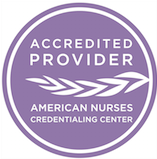Online Program
Adolescent Health: Highlighting National US/CDC Data & Prevention Strategies for US Adolescents
Overview:REGISTER NOW
Cost: $ 20.00
Contact Hours 1.0
Objectives:
Learning Outcomes
After viewing the presentation, the participant will be able to
1) Describe current data trends among high school students as related to various risk behaviors identified by the United States Centers for Disease Control and Prevention (CDC)?
2) Identify three school-based prevention strategies shared by CDC presenters that are effective in reducing risk behaviors among adolescents?
3) Describe at least two activities or resources available to school nurses that were shared by CDC presenters
Presenter:
Kathleen Ethier, PhD
Dr. Ethier is a social psychologist and the Director of CDC’s Division of Adolescent and School Health in the National Center for HIV, Viral Hepatitis, STD, and TB Prevention. She has served as a leader at CDC in adolescent health as well as other capacities since 1999. Prior to joining CDC, Dr. Ethier spent six years on the research faculty at Yale University studying HIV, STDs, and unplanned pregnancy prevention among women and adolescents. Her research has primarily focused on psychosocial, behavioral, and environmental factors related to adolescent mental and physical health. Dr. Ethier earned her PhD in social psychology from the Graduate Center of the City University of New York.
Carmen Ashley, MPH, MCES
Ms. Ashley is Chief of the Program Development and Services Branch in the Division of Adolescent and School Health (DASH) at the Centers for Disease Control and Prevention (CDC). In her current capacity, she oversees two teams that manage cooperative agreements funded to local education agencies and non-governmental organizations. Prior to her current position, Carmen was a Public Health Analyst in DASH’s Office of Policy, Communication, and Strategy, where she worked within and across other CDC divisions to identify and address risk and protective factors related to risky behavior among adolescents.
In addition, Carmen was a Team Lead in DASH’s Program Development and Services Branch for three years. Before joining CDC, Carmen was the Associate Director for Programs and Operations in the Applied Public Health department at Emory University. She has over 20 years of experience working on school-based adolescent issues for other public health agencies such as the American Cancer Society, the South Carolina Department of Alcohol and Other Drug Abuse Services, and the South Carolina Department of Health and Environmental Control.
Carmen is an active member of the American Public Health Association, the American Society for Public Administration, the American School Health Association, and the Juvenile Diabetes Research Foundation, where she serves on the Global Mission Board. Carmen holds a bachelor’s degree in Biology from Furman University, a Master of Public Health Degree from the Rollins School of Public Health at Emory University, and she is currently a doctoral student at Valdosta State University. She is also Master Certified Health Education Specialist.
None of the planners for this educational activity have relevant financial relationship(s) to disclose with ineligible companies whose primary business is producing, marketing, selling, re-selling, or distributing healthcare products used by or on patients.
At this time, none of the presenters for this educational activity have relevant financial relationship(s) to disclose with ineligible companies whose primary business is producing, marketing, selling, re-selling, or distributing healthcare products used by or on patients. If relevant financial relationships are identified, this information will be shared with learners prior to the educational activity.
Continuing Education Information:
Northeastern University School of Nursing is accredited as a provider of nursing continuing professional development by the American Nurse Credentialing Center’s Commission on Accreditation.

Department of Elementary and Secondary Education Provider Number 2016U018
Participants successfully completing this program will receive a statement of credit for contact hours. Statements of Credit may be printed on-line after successful completion of the learning assessment.
